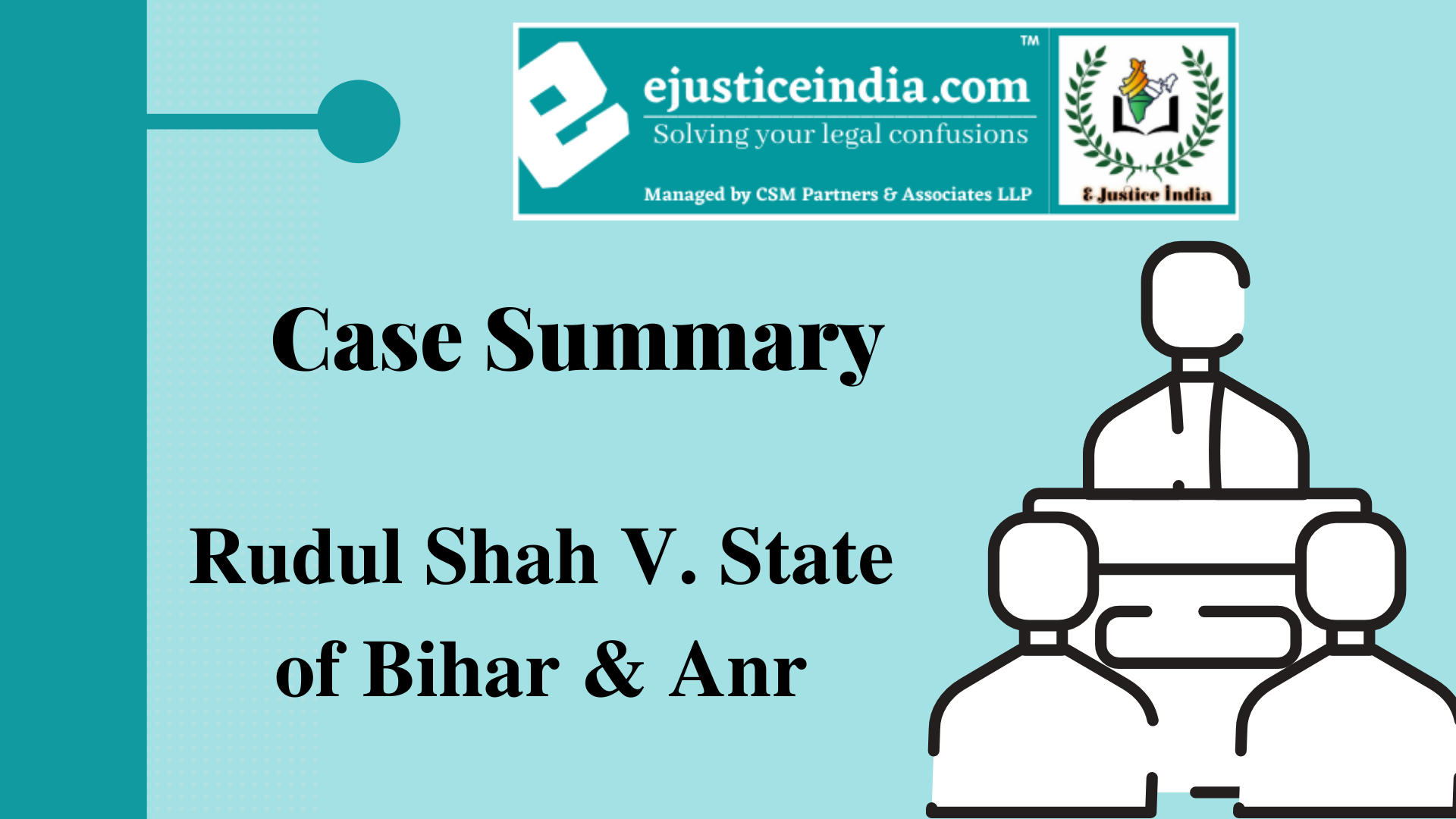D.K. BASU VS STATE OF WEST BENGAL
CASE NAME : D.K. BASU VS STATE OF WEST BENGAL
AUTHOR : VAIBHAVI BATRA
EQUIVALENT CITATION
AIR 1977 SC 610
BENCH
Justice Kuldeep Singh and Justice A.S. Anand
INTRODUCTION
Police Brutality is a rising concern in India. It means that when the police officers make excessive use of their powers which results in violence in the police custody. Violence includes both mental and physical. Custodial death is a major example and a rising concern of police brutality in India.
FACTS
D.K. Basu, an Executive Chairman of Legal Aid Services, West Bengal, which was a non – political organization wrote a letter to the Chief Justice of India, regarding his concern over the number of increasing cases of torture and deaths in the police custody and lockups.
He also mentioned that the crime reported often goes unpunished, so for the same the Court should look into the matter. Also, the court should make some provision to give compensation to the victim or his family members for his sufferings in the police custody. This letter to the Supreme Court was treated as a writ petition.
Simultaneously, another letter by Ashok Kumar Johari was addressed to the Chief Justice of India citing his concerns over the death of Mahesh Bihari of Aligarh in police custody. He also mentioned that the police are misusing their powers which further infringe Article 21 and Article 22 of the Indian Constitution of the persons in the custody.
ISSUES AND FACTS OF LAW
Why there is a sudden increase of violence in police custody and lockups?
Should there be some guidelines for the police to make arrests?
JUDGEMENT
The judges after reviewing – Nilabati Behera vs. State of Orissa (1993) – in this case it was held that any form of torture, violence or inhumane behavior in the police custody or lockups is not justifiable and hence infringes the person’s right to liberty. Thus, it was held that the undertrials, convicts and other people in the police custody cannot be denied of Article 21 of the Indian Constitution.
Thus as a result, the Court issued a list of 12 guidelines which the police have to follow in all the cases of arrest and detention –
- The police personnel carrying out the arrest and handling the interrogation should bear clear tags of their name and designation.
- The police personnel carrying out the arrest shall make a memo at the time.
- The person who has been arrested has a right to inform his friend, relative or any other person known to him, that he has been arrested.
- The time, place and venue of custody of arrestee must be notified by the police and where is friend or relative lives outside the town through Legal Aid Organization in the District and Police station of the area concerned telegraphically within 8 – 12 hours of arrest.
- The arrested person must be aware of his right to inform of his arrest or detention.
- An entry should be made at the place of his detention of his name, name of the person who has been informed about his arrest and the name of the police officer who arrested him.
- The arrestee should be checked at the time of arrest and if there are any prevalent injuries, they should be recorded.
- The inspection memo must be signed by both the arrestee and the arrestor. The copy of the same should be provided to the arrestee.
- The arrestee should be subjected to medical examination by a trained doctor in every 48 hours of his arrest.
- Copies of all the inspection including the memo should be sent to the Magistrate for his record.
- Arrestee should be allowed to meet his lawyer during the interrogation but not throughout the whole interrogation.
- A police control room should be made in every district and all state headquarters where the information regarding the arrest of person can be communicated by the police officer who has done the arrest. The information must be communicated within 12 hours of arrest and it should be displayed on the board of police control room.


